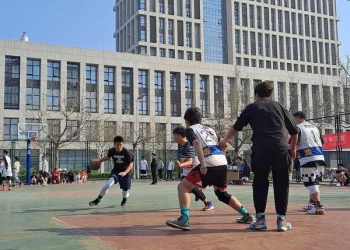Applying for studying abroad in Japan, setting magnetic is something that every student needs to do.
When you need to write a magnetic letter, so how do you write a magnetic letter?
Come here to learn about the set of writing matters for studying abroad in Japan.
1, a set of magnetic mail subject to attract the subject of the mail is similar to the title of the article, to let people see the mail first see our intention, which requires our topic to be concise and clear.
For example, “hydrate it for graduate students by means of studying it.” “Hydrate it for graduate students by means of studying it by means of itarashi I by means of housing”.
2, professor set magnetic will not do, “I looked up a lot of information about the school and the professor before this, my paperwork carefully prepared for a long time, my preliminary preparation work is so in place, that after my first letter sent out, all the professors will reply and is intentional.”
I believe this is the voice of all the students after the first email.
After carefully clicking the send button, I stared at the mailbox, expecting the professor to extend an olive branch immediately.
But as the saying goes, “the ideal is full, the reality is very bony”, the professor is not as kind as we imagine, maybe after a letter is sent, he will disappear into the sea, no reply.
There are many reasons why professors don’t reply, so we should never get frustrated and lose our heads.
It is a common phenomenon that professors do not reply in the process of magnetic sleeve, we should be prepared for this.
3, How to reply to the professor After many non-reply or rejection letters, a deliberate, professor reply is late, because of the previous experience, such a reply is precious, these professors are the focus of our continuing set of magnetic objects.
In general, the professor does not give Neino directly (there is, but it is rare). The professor will continue to examine the applicant’s research ability, financial support, future plans, etc., and ask a lot of questions.
When answering the professor’s questions, there are the following principles: enhance your strengths and avoid your weaknesses: when replying to the professor, you must highlight your strengths, for example, some students have rich research experience, for example, some students have outstanding language scores, etc., which can be said three times as important things.
Move with emotion: To move with emotion, writing a long reply is the best way to show your true feelings.
I think that a few words are relatively weak, and it is always right to write more.
The professor should be impressed by the applicant’s sincerity when he sees such a long reply.
Some students may be advised by the professor to take the exam directly. They should not say that they are not competent enough to enter the study of monks. Instead, they should confirm their goal of further study and explain the importance of postgraduate study.
Special emphasis should be placed on the differences between Chinese and Japanese education, confirming that the study in the transitional stage can help you to lay a foundation and adapt to life, improve your comprehensive strength, and express your determination to pass the entrance examination for monks in one go.
2. Most professors will not decide to accept a student’s application at once. If they are satisfied with the student, they will issue an invitation for an interview.
If you wait too long, it will not be conducive to the professor’s preparation, and the place may be occupied in advance. You need to make careful preparation and confirm your qualifications, and you can usually receive a reply soon.
1, English scores in some excellent universities in Japan, such as the University of Tokyo, Kyoto University for the applicant’s English is required, if the applicant’s English scores are good, it will have a certain advantage;
2. If the major students choose to study in Japan is the same as the domestic major or has some correlation, it will be better to apply;
3. Applicants need to submit application materials for studying in Japan, which mainly include resume, recommendation letter, research proposal, and documents. The documents play a very important role in your application, so you must prepare carefully.
4, college background this is also a very important indicator, if the applicant graduated from the domestic first-class university, the tutor will look at you with new eyes, if the applicant graduated from Tsinghua or Peking University, such a famous university, the success rate of application will be improved a lot.
In order to successfully apply for a master’s degree in Japan, students must meet the requirements for master’s degree. The general requirements for master’s degree mainly include English scores, major requirements, writing, and college background.




















